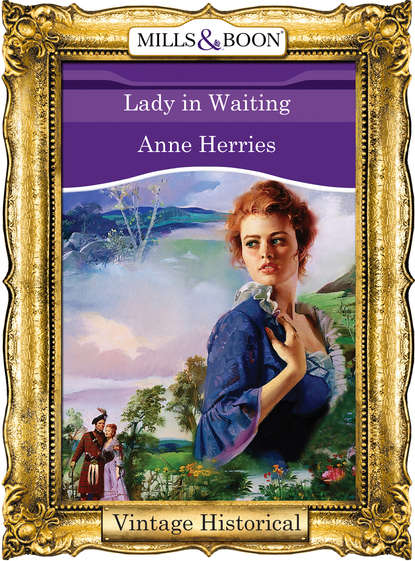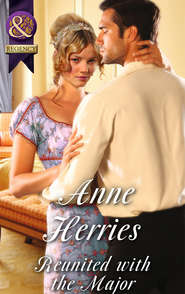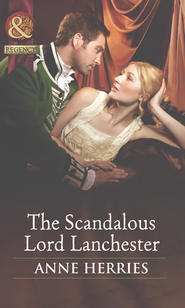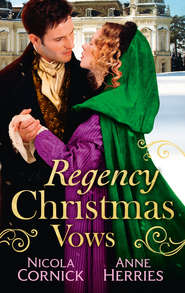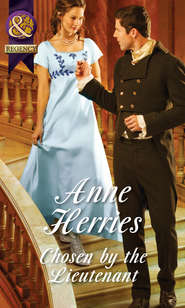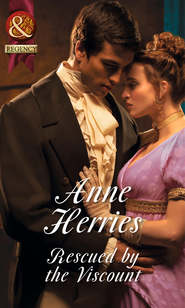По всем вопросам обращайтесь на: info@litportal.ru
(©) 2003-2024.
✖
Lady in Waiting
Настройки чтения
Размер шрифта
Высота строк
Поля
‘If they are good plays.’ His mouth curled in scorn. ‘This is a very bad play. When I am older I shall write much better ones. People will not throw rotten vegetables at my actors.’
Catherine smiled to hear such a proud boast from one so young.
‘I shall remember that,’ she said. ‘May I know your name, sir? Then I shall know when one of your plays is being performed in the future.’
‘I am Christopher Marlowe, known as Kit to my friends.’ He bowed elegantly to her, showing more presence than any actor now performing on the stage. ‘Come to the theatre when my play is being performed and I shall remember you.’
‘I shall not forget, Master Marlowe…’
She was about to tell him her name when an uproar from near the front of the audience drew her attention. The group of rowdy gentlemen was throwing things in earnest now and shouting out rude remarks to the actors, and the man who had been rolling about was up on his feet and throwing something back at his tormentors.
Catherine’s eyes were drawn to one of the young men in particular. So far she had not seen him throw anything, and he neatly avoided what was thrown in his direction, but he was clearly enjoying the ruckus, his generous mouth curved in a smile, his eyes glinting with what she thought malicious amusement. It was unkind of him to mock the poor actor so!
He was dressed in a brown jerkin of leather with breeches of the same material slashed through to show a lighter coloured woollen cloth beneath. His boots were thigh high and looked well travelled, and the cloak slung over his shoulder was dusty and slightly shabby. Yet he looked a gentleman, tall, broad-shouldered, with a powerful air around him. He was an attractive, distinguished man, who ought to have known better than to associate with the clearly intoxicated young rogues about him. If they did not know better then he certainly ought, which was perhaps why she had picked him out for particular censure.
It looked very much as if the play was about to become a riot. Catherine was turning away when she heard her aunt’s voice calling to her.
‘Come away, Catherine. There will be a fight ’ere long. It is not a fitting entertainment for a young lady of your breeding. When we are in London we shall see something better than this mummery.’
Catherine looked about for the young lad she had spoken to earlier and saw that he too was being led away from the trouble by a man who looked as if he might be his father. She smiled to herself as she recalled his boast and wondered if young Kit Marlowe would achieve his ambition. And whether fortune would be kind to him if he did.
Travelling players were at the mercy of their patrons, as were ambitious playwrights. Rich men were sometimes moved to support a group of players they admired, but those less fortunate were forced to tramp the country performing where they could for whatever was given them.
Following her aunt into the inn, where a meal of cold meat, pickles and a dish of hot buttered turnips was being served, Catherine frowned over the behaviour of the young blades who had turned the performance into a brawl. It was monstrous unfair to treat the unfortunate players so, and had she been a man she would not have hesitated to tell them so. Indeed, had her aunt not arrived to take her away, she might have been tempted to speak sharply to the man in the brown leather jerkin.
It was growing dusk when Catherine heard the horrible snapping sound and their carriage jerked to a sickening halt. She was thrown from her seat, and after recovering her position scarcely had time to glance at her aunt before the flaps at the windows were pulled aside and the groom was apologising.
‘The leading pole has snapped, my lady.’
‘Can it be mended, Jake?’ Lady Stamford asked.
‘Not right ’ere, it can’t, my lady. We shall need to find a blacksmith and ’ave ’im make a metal splint…’
‘Then what are we to do? How far is it to the next inn?’
‘Five miles or more, my lady.’
‘I cannot possibly walk that far…’ She glared at the hapless groom. ‘Go and fetch the blacksmith or a carpenter. And be quick about it. It cannot be long before darkness falls and I do not wish to be sitting here all night.’
‘No, my lady.’ He looked at her hesitantly. ‘Could you not ride in the baggage coach? We could mend the pole in the morning…’
‘Pray do as you are told, sirrah. Go and see to it at once.’
‘We shall need to lead the horses off the road, my lady—and the carriage is blocking the road. No one can pass until we move it to one side.’
‘Well, do so then!’
‘Yes, ma’am—if you and Mistress Catherine would be good enough to get down.’
‘Get down?’
‘It will make things easier, Aunt,’ Catherine said, seeing that Lady Stamford was outraged at the idea. ‘And the carriage might overturn if they have to rock it to move it.’
‘In that case we shall oblige.’
Catherine smiled inwardly as her aunt was helped out of the carriage. The look of dismay on Lady Stamford’s face as she stood at the side of the road was amusing, but after some minutes, while the coachman and groom attempted to move the cumbersome vehicle, the situation became less diverting. Catherine had begun to feel uncomfortable herself, for it turned a little chilly and looked as if it might rain soon.
‘Where is the baggage coach?’ Lady Stamford demanded irritably, as her servants showed no sign of moving the cumbersome vehicle. It was obvious that she was beginning to think riding with the maids might be more desirable than standing by the side of the road. ‘Have all my servants deserted me? I am not accustomed to being so ill served.’
‘The coach is slower than our carriage—and poor Ben and Jake are doing their best, Aunt.’
‘Then their best is not good enough!’ She looked set for another angry outburst when they heard the sound of horses’ hooves approaching. ‘Ah, perhaps it… Oh, it is merely a rider.’ Lady Stamford’s face registered her disappointment, but in another moment she was smiling as the rider dismounted and came towards them.
‘You are in some trouble, ma’am?’
‘Indeed, sir, as you see.’ Lady Stamford threw out her hands. ‘These incompetent fools of mine make no progress and I fear a storm is imminent.’
‘I believe you may be right.’ The stranger glanced at dark clouds gathering overhead. ‘You need help, for it will take more than two men to move that carriage.’ He made her a little bow. ‘May I introduce myself, ma’am. I am Sir Nicholas Grantly and I have relatives living just a short distance away. If you would consent to accompany me I am certain they will offer you and the young lady shelter and refreshment while their servants assist yours to clear the road.’
‘Sir, I shall be delighted to accept your friends’ hospitality, for I declare I am weary of standing here and turning chill.’ Lady Stamford turned to Catherine, beckoning her to follow as Sir Nicholas offered to lead the way. ‘Come along, my dear.’
Catherine hesitated, feeling oddly reluctant to go with him. She had recognised their rescuer as being the gentleman she had noticed at the inn. He had been in the midst of the rowdy element and laughing as heartily at the discomfiture of the poor players as the rest.
‘You do not know him, Aunt,’ she whispered, darting a glance of disapproval at Sir Nicholas’s back. ‘He might be anyone—a villain set to trap unwary travellers. Might it not be better to wait for the baggage coach, which cannot now be long behind us?’
‘Nonsense!’ Lady Stamford frowned at her. ‘Sir Nicholas is clearly a gentleman and you should be grateful he came this way and chanced upon us, for in another ten minutes we should have been caught in a downpour.’
As a steady drizzle had begun to fall, Catherine was unable to contradict her aunt, though she continued to feel doubtful until the house was reached. For who knew what kind of a man he was or where they might find themselves lodged for the night?
The house was, however, as Sir Nicholas had stated, but a short distance down the road, and proved to be a simple but sturdily built country home of good proportions. One long building had a sloping thatched roof, and ivy growing up its walls; it made no pretension of grandeur but was the home of a gentleman of some substance, glass windows having replaced the older shutters which were still in evidence but permanently nailed back.
They were welcomed at the front porch by an apple-cheeked housekeeper, who drew them in and clucked over their misfortune, promising to send Jed and Seth with the farm horses to sort the matter out.
‘For them fine carriage horses will be frettin’ themselves to a lather by now and nobody be better with horses than our Seth. He’ll see you right and tight, milady—and Seth can mend that pole of yours in a trice.’
‘I’ll take our guests into the parlour, Jessie,’ Sir Nicholas said. ‘Will you send in some wine and biscuits in a moment?’
‘Aye, that I shall, Master Nicholas. The mistress be always pleased with company.’
‘Ladies—this way.’ Sir Nicholas waved them through the rather narrow hall into a large and comfortable parlour. The wooden floor had been recently swept with sweet herbs that cast a delicate fragrance. The main wall had been hung with a fine carpet, and there was a court cupboard at one end set with burnished pewter. An elbow chair was placed to either side of the fireplace, which had a good blaze to welcome them, and there was a Gothic oak settle that looked as if it might have come from a monastery at the time of their dissolution. Stuffed cushions, embroidered possibly by the lady of the house, had been placed against the carved back. Clearly the mistress of this home was accustomed to being indulged, for there were several precious items that showed that her husband had used his wealth to bring pleasure and comfort to his wife.
‘Ah, Sister Sarah Middleton,’ Sir Nicholas said, and held out his hands as a young and comely woman came flying towards him. ‘I find you well, I hope?’
‘Nick, my darling! At last you come,’ Sarah Middleton cried. ‘I have been expecting you two days and more.’ She turned sparkling dark eyes on Lady Stamford and Catherine. ‘But who have you brought to see me? You said nothing of guests, you wicked one.’
Her scolding tone was belied by an affectionate smile as she hung on to his arm. She was a pretty, plump woman of perhaps twenty, with soft dark hair that streamed from beneath a cap of fetching lace.
‘You must not scold your brother,’ Lady Stamford said, going forward to greet her. ‘For he found us stranded on the road after our carriage unfortunately broke down and took pity on us, which was exceedingly kind of him. I hope we do not trespass on your hospitality too much, ma’am?’





